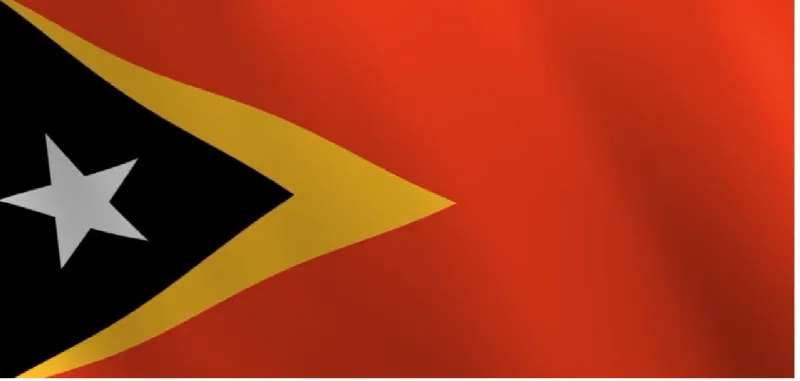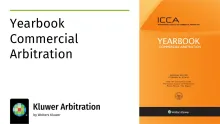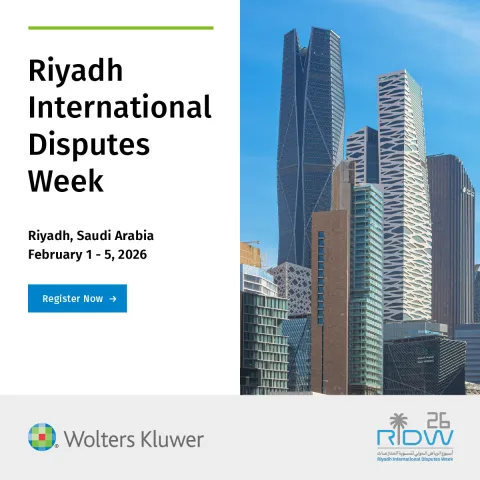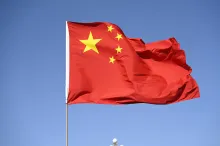Beyond the Timor Sea: Timor-Leste’s Accession to the Permanent Court of Arbitration
September 25, 2025
On 22 July 2024, the Democratic Republic of Timor-Leste (“Timor-Leste”) deposited its accession to the 1907 Hague Convention for the Pacific Settlement of International Disputes. Through its Act of Accession, Timor-Leste became the 124th Contracting Party to the Permanent Court of Arbitration (“PCA”), with its membership taking effect on 20 September 2024. This blog post highlights the significance of Timor-Leste’s accession in the context of the State’s historical engagement with international dispute settlement, its geopolitical and economic priorities, and its emerging arbitration framework.
During the announcement at the PCA’s 125th Anniversary Commemorative Event, Ms. Elizabeth Exposto, Chief of Staff to the Prime Minister of Timor-Leste and Chief Executive Officer of the Land and Maritime Boundary Office of Timor-Leste, emphasised that Timor-Leste is a young nation built on the principles of international law and the pacific settlement of international disputes.
Timor-Leste’s modern statehood has always been deeply intertwined with international law. The country we know today emerged through a long and hard-fought battle for self-determination. Ever since, Timor-Leste has faced an uphill battle in asserting its sovereign rights and entitlements against powerful neighbours. Despite, or perhaps because of, these challenges, Timor-Leste has become a pioneer in resolving intractable disputes in accordance with international law. Timor-Leste’s accession to the PCA reinforces its parallel domestic initiatives to build a credible, rules-based arbitration framework. By becoming a PCA member, this young nation solidifies its relationship with a longstanding but ever-evolving institution, and takes a pivotal step in shaping the legal terrain through which Timor-Leste’s rights are exercised, contested, and safeguarded.
Timor-Leste at the PCA
Conceived as the first forum for international dispute settlement that is “accessible at all times”, the PCA has, on occasion, been described as merely a venue, rather than an institution that actively contributes to international law-making. Still, a large part of the PCA’s enduring value lies in its adaptability to the changing demands of the international community. Although best known for administering arbitration proceedings, the PCA also accommodates non-binding processes like conciliation, mediation, and fact-finding inquiries. The PCA has developed specific rules for state-to-state disputes, investor-state arbitration, and disputes involving international organisations.
This procedural flexibility and subject matter specificity have made the PCA a venue of choice for complex and politically-sensitive matters. In this respect, Timor-Leste is no stranger to the auspices of the PCA. In 2016, Timor-Leste requested the PCA to administer the Timor Sea Conciliation (Timor-Leste v. Australia) PCA Case No. 2016-10 (“Timor Sea Conciliation”) which was the first, and to date, only, conciliation under Annex V of the United Nations Convention on the Law of the Sea.
As demonstrated in the Timor Sea Conciliation, because of the breadth of dispute resolution processes the PCA can accommodate, it can function as a forum of last resort where other legally binding avenues are unavailable. Timor-Leste, more than most, can vouch for the benefit of these alternative processes in confidence-building, identifying solutions and preserving bilateral relationships.
Non-member states can of course be parties to PCA-administered arbitrations, but membership formalises Timor-Leste’s status as part of the PCA’s administrative and diplomatic network. It marks a shift toward integrating arbitration as a reliable means of dispute resolution in Timor-Leste’s legal system, with PCA expertise reinforcing local efforts to train practitioners and develop institutional familiarity.
As a Contracting Party, Timor-Leste gains the right to nominate up to four persons of “known competency in questions of international law, of the highest moral reputation and disposed to accept the duties of arbitrators” as “Members of the Court”. While parties to a dispute are not obliged to select arbitrators from the list of Members of the Court, these members are eligible for appointment as arbitrators in PCA-administered arbitrations, offering Timor-Leste a platform to shape the interpretation and application of international law in ways that reflect its legal values and regional experience. This is especially significant given the persistent underrepresentation of Southeast Asian perspectives in international arbitration.
Timor-Leste has also recently drawn upon the PCA’s procedural guidance and technical support. From 14 to 16 May 2025, the Deputy Secretaries-General and Principal Legal Counsels of the PCA, Mr. Martin Doe and Mr. Garth Schofield, undertook an official visit to Timor-Leste, which included high-level engagements, a workshop on international commercial and investment disputes, and participation in the Second Díli International Conference on the Law of the Sea and Maritime Dispute Settlement. At the Conference, President José Ramos-Horta awarded the Order of Timor-Leste (the country’s highest civilian honour) to Deputy Secretaries-General Schofield and Doe, in recognition of the PCA’s indispensable role in the Conciliation’s success.
The Timor Sea Conciliation ultimately led to the 2018 Treaty Between Australia and the Democratic Republic of Timor-Leste Establishing Their Maritime Boundaries in the Timor Sea. But its legacy is broader: it was evidence of Timor-Leste’s faith in rules-based approaches and its sophisticated use of dispute resolution mechanisms to level the playing field. In the years since, the state has taken deliberate steps to build its dispute resolution capacity and create a modern, investor-ready arbitration ecosystem aligned with international best practice. Timor-Leste’s accession to the PCA in 2024 reinforces this. It is a clear demonstration that Timor-Leste is expanding its institutional toolkit to exert greater influence in the region and stand on equal footing with its Indo-Pacific neighbours.
Timor-Leste’s Ongoing State-Building
Dr. Hab. Marcin Czepelak, Secretary-General of the PCA, noted that Timor-Leste’s accession is “an additional step to further strengthen the existing bonds between the PCA and the region of Southeast Asia”. Since regaining its independence in 2002, the country has made remarkable strides in legal and institutional capacity-building. Its PCA membership, and its broader measures to develop robust arbitration infrastructure, should be viewed in this wider context.
While the country was a pioneer for the power of conciliation, until quite recently, the country’s arbitration framework was underdeveloped. Although its Civil Code (No. 10/2011) mentions arbitration, Timor-Leste lacked a standalone arbitration statute until 2021. As discussed in this post, that changed with the adoption of its Voluntary Arbitration Law (No. 6/2021) (see informal English translation here). This law covers both domestic and international arbitration and aligns with the UNCITRAL Model Law on International Commercial Arbitration.
PCA membership now complements this legislation by offering an institutional partner that can support capacity-building and help embed international best practice in the country’s growing arbitration culture. For example, Timor-Leste is yet to establish the institution to support the implementation of the Voluntary Arbitration Law (see Article 73). Timor-Leste’s PCA accession could therefore present opportunities for Timor-Leste to partner with the PCA to create these arbitration centres. The past few years have also seen the country accede to the New York Convention (becoming the 172nd State Party on 17 April 2023) and the World Trade Organization (becoming the 166th WTO member on 30 August 2024). Along with Timor-Leste’s recent PCA membership, these acts all represent the high watermark of the country’s efforts to establish credibility as an arbitration-friendly and arbitration-ready jurisdiction.
Timor-Leste is expected to be granted full ASEAN membership at the association’s October 2025 summit. This would mark the culmination of two decades of sustained diplomatic engagement, and the fulfilment of one of Timor-Leste’s most coveted post-independence goals. Timor-Leste’s PCA accession reinforces its aspirations for full ASEAN membership by demonstrating its readiness to engage in rules-based dispute resolution consistent with ASEAN’s emphasis on legal harmonisation and peaceful dispute settlement. Regardless of its membership status, a comprehensive and effective arbitration system is a key pillar in Timor-Leste’s endeavours to deepen trade and investment ties with its ASEAN neighbours, and attract broader foreign investment.
Taken together, these steps reflect Timor-Leste’s long-term commitment to regional and international integration. Developing its arbitration legal architecture, especially through PCA membership, is an essential aspect of this strategy.
Looking Forward
Geopolitically, Timor-Leste sits in a neighbourhood of growing complexity and opportunity. Domestically, the commercial development of the Greater Sunrise gas and condensate field is important to Timor-Leste’s economy. However, the Government seeks to avoid over-reliance on its abundant natural resources and pursue wider economic diversification initiatives in pursuit of sustainable economic development.
As Timor-Leste seeks to attract diversified foreign direct investment beyond its nascent oil and gas industry, its PCA membership will be an important asset to enhance investor confidence. It sends an unequivocal message that Timor-Leste is a strong proponent of the rule of law and is committed to resolving disputes in line with best practice.
For Timor-Leste, PCA membership is more than an act of symbolism, legalism for legalism’s sake, or even “doing the done thing”. It forms part of a deliberate strategy to institutionalise legal preparedness as a core component of the nation’s sovereign agency. PCA membership equips the country with institutional familiarity and a more active role in influencing the development of international legal norms. Just as importantly, it fosters the confidence needed to grow a domestic arbitration system that meets international standards and can support economic diversification. These are fundamental tools as Timor-Leste navigates future disputes, whether over maritime boundaries, natural resources, infrastructure, or foreign investment. Through this strategic positioning, Timor-Leste reinforces its identity as a principled, democratic, and forward-looking state — one that, while small, refuses to be marginalised in shaping the legal landscape of its region and beyond.
Gitanjali Bajaj co-led the DLA Piper legal team that represented the Democratic Republic of Timor-Leste in the Timor Sea Conciliation.
You may also like











